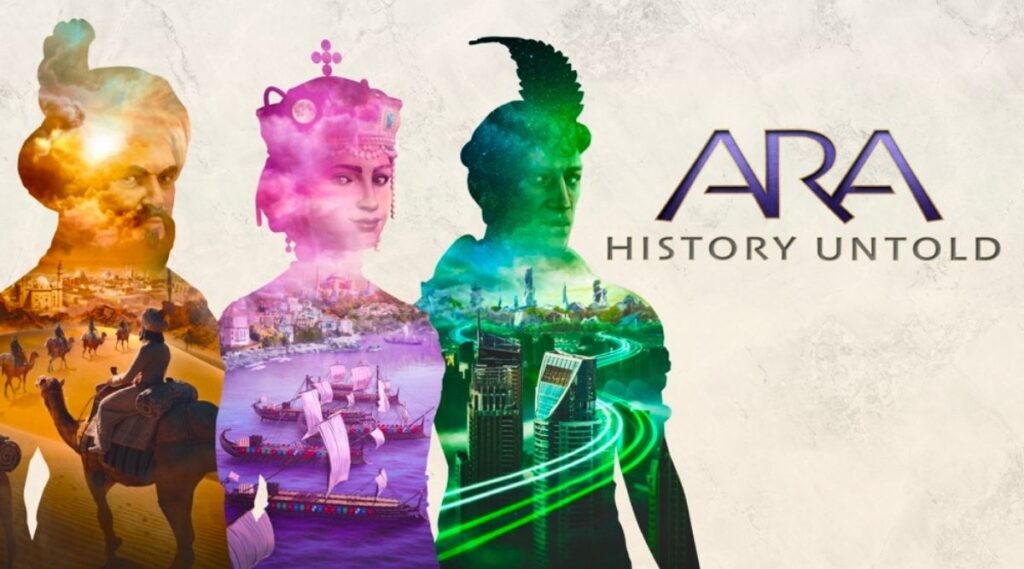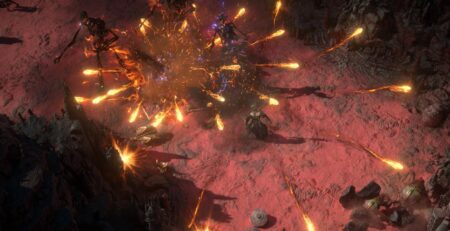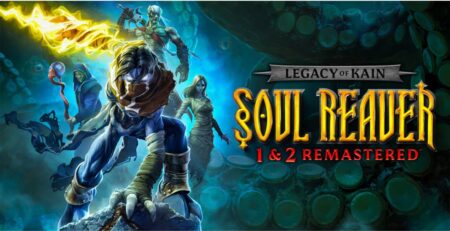Since the earliest days of human civilization, people have banded together under great leaders, looking to build something that can survive the test of time. Ara: History Untold, developed by Oxide Games and published by Xbox Game Studios, is a grand strategy game that tasks players with stepping into the role of that great leader as they try to navigate the ages, building grand civilizations and making sure their people can live good lives in the process.
Everything about the grand strategy genre can be daunting. Ara: History Untold is one of the most challenging and rewarding gameplay experiences I’ve ever had. And it looked great while doing it.
The visual presentation throughout this game is detailed and thoroughly thought out. From the opening sequence that sees the camera sweeping through a beautifully rendered sequence of historical figures intermingling throughout the ages, to the final victory screen, everything feels right.
The most frequent area where players will appreciate this attention to detail is within the game’s world. Painstakingly designed elements fill out every nook and cranny you explore. And just like the real world, everything is constantly in motion. Water laps at the coast, people move along roads, and fires dance with gorgeous effect. And the breathtaking presentation only grows as you progress through the ages.
While small towns filled with quaint farms and butcher shops look lovely, they are nothing compared to the glittering steel spires and roaming hover cars players will eventually be able to observe when they zoom in close to their thriving metropolises. I found myself making it a point to zoom in during every age of the game, just to see what changes had happened and how the developers made them come so gorgeously to life.
Another element that breathes extra life into Ara: History Untold‘s world is the natural shaping of regions. Rather than go with a hex or other grid-based system, each region of the world is shaped organically. Separated by rivers and other natural features, these uniquely shaped territories make each instance of a structure look unique.
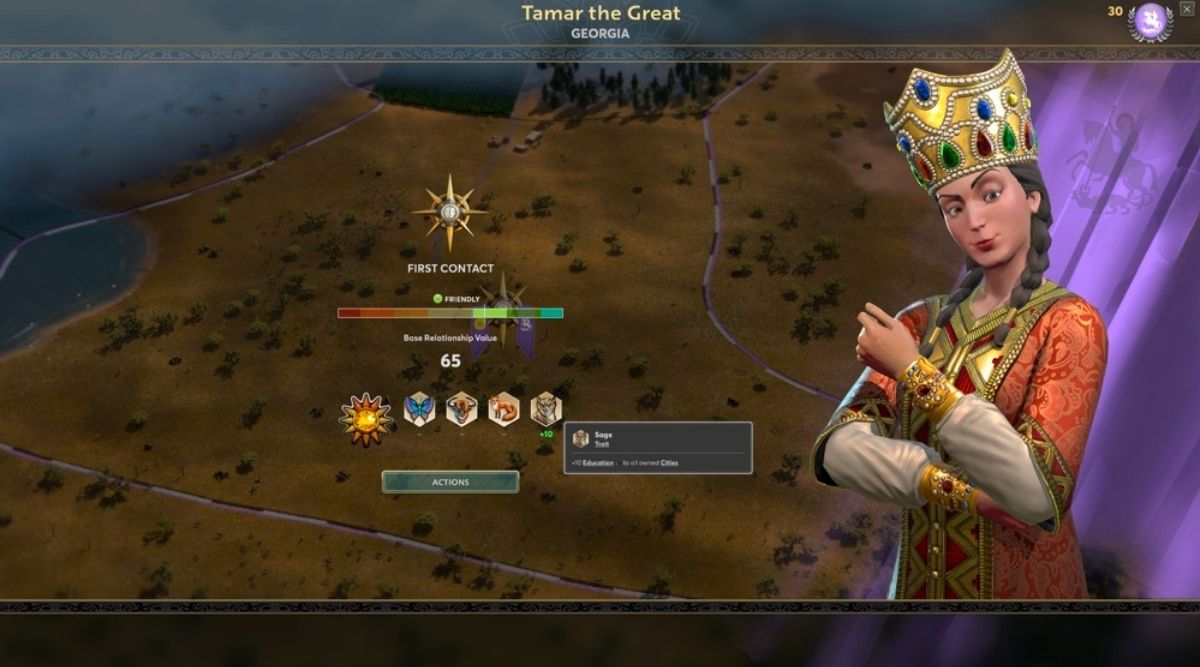
While the world in Ara: History Untold is where the visuals shine the brightest, it’s not the only place they enhance the experience. The UI also utilizes great design sense in how it presents the plethora of menus, stats, and options the player has to manage and keep track of. Clear iconography is easily identified and handy pop-up menus that can be summoned by hovering over key phrases, allowed the player to easily hunt down almost anything needed. It’s still a lot when you first start to engage with it, but it does a great job of helping the players find what they need.
The final element of the game’s visuals that bear mentioning is the design of its leaders. Each of the base game’s 36 leaders, 41 in the deluxe edition, come wonderfully designed with numerous animations to express themselves during diplomacy scenes. Of the cultures I’m familiar with, every leader looked authentically styled in attire that fit.
Now that we are done talking about Ara: History Untold‘s visuals, let’s get to the meat of the matter, the gameplay. Rather than going with the classic “x nations compete till someone achieves a victory condition” format, Oxide Games takes a different approach that breathes more tension into the game with its acts system.
Each game is broken into three acts. When a certain number of nations have reached a point in development, an act ends. When it does, the game looks at how much prestige each nation has. The lowest nations get relegated to the dustbin of history, while those accomplished enough to stand tall move on. As one may guess, the nation with the most prestige at the end of Act Three wins.
With warnings coming when one of these transitions is getting close, players will feel the need to focus if they are close to the edge. Where they stand with other countries in the prestige race is always available to them, so there is no guessing whether they’ll make it. This also has the added effect of letting players too stubborn to admit defeat and out rather than struggle on for a lost cause for ten more hours. *cough cough*
Another thing that makes the prestige system in Ara: History Untold great is how it opens up the player’s options for their nation. All the other grand strategy games I’ve played always made me feel like I should focus all my efforts on my chosen path while partitioning off just enough resources in other areas to get by. Because every endeavor leads to prestige, you are free to pursue a more holistic nation development approach. That’s not to say that you won’t likely find yourself with a specialty, just that dabbling more in others doesn’t feel like a waste.

The first thing that will help players decide what that focus will be is their chosen leader. Each leader has a unique ability that gives the player a solid idea of what they excel at and several more generic abilities to augment several facets of their nation. While these abilities are strong, it didn’t feel like they were drastic enough to penalize you harshly if, for some reason, you found yourself shifting out of their specialty. I particularly love this choice as I suspect there may be more than a few players who want to choose characters for reasons outside of ability focus.
Ara: History Untold doesn’t just sport a huge number of leaders to pick from, but also a wide range of ethnic and cultural backgrounds. While many expected leaders, like Joan of Arc and Genghis Khan, are here, far less-known personalities, such as Wu Zerian of China and Amanirenass of Kush, are also here. The choice to present lesser-known figures from countries, or figures from lesser-known countries in general, allows players to play as someone new. And, of course, it makes it more likely for players to find a leader representing their heritage.
Once a leader is chosen, players will have to choose how to set up their map. There is a huge number of variables players can opt into that will impact their games. From obvious choices like the number of players and size of maps to more unique options like ocean levels and axial tilt, they promise lots of variety for players coming back for multiple treks through the ages.
Helping players find their feet in Ara: History Untold is a solid tutorial. Guiding players through their first turns, the tutorial makes the game far clearer than it might’ve been. Also, a feature I loved was the ability to start a new game, containing the tutorial from where you left off. This means that if you die early in your first game like I did, you can have the tutorial on in your following game, but it won’t repeat the messages you already got. Rather it waits for a new element to come along before presenting new information to you.
The game’s nuts and bolts will be familiar to any grand strategy player. Starting with fewer resources and structures, players build up their nations as they navigate deep tech trees that provide loads of building and upgrade options. While it handles the core concepts of the genre well, there are a few big elements that will change how players play Ara: History Untold.
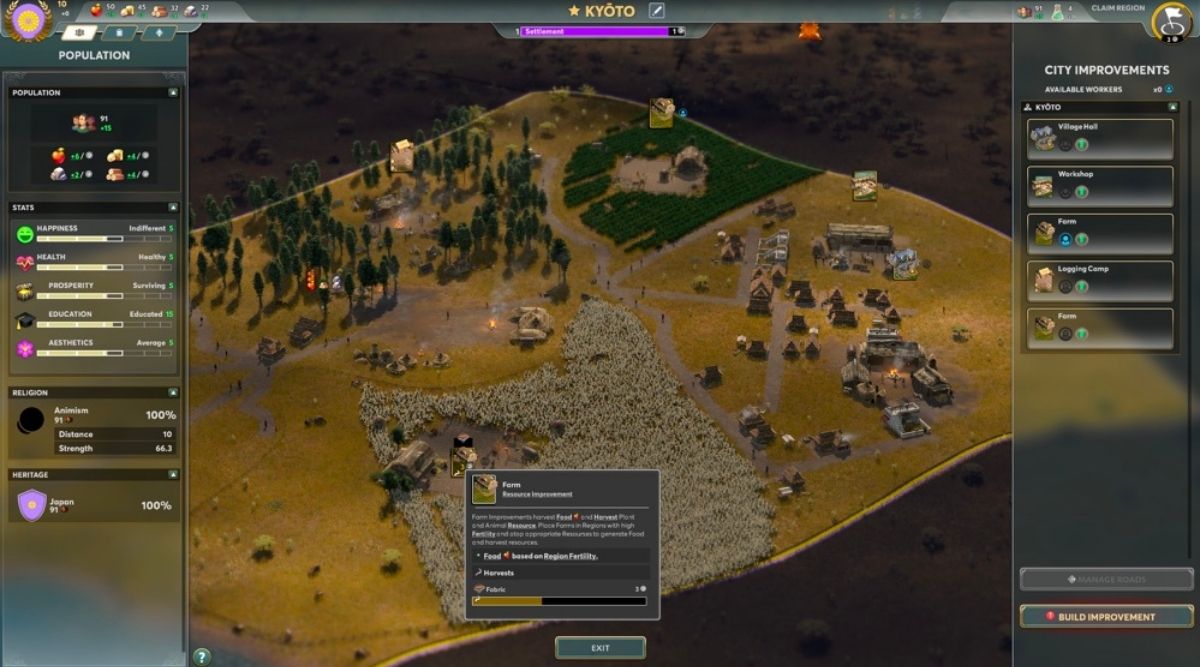
The first is that it is a simultaneous turn-based game. That means that everyone plans out their turns at the same time, and then they all resolve together. While the in-game impact of this isn’t too huge, only coming into play when units come close to each other, the big impact it promises is on turn time in multiplayer games. With everyone planning out their turns at once, playtime promises to be drastically shorter. This feature allows the devs to offer up to 36 player matches without worrying about days going by between turns.
The other big element that sets Ara: History Untold apart from its contemporaries is its focus on the citizens of your nation. So much of the game feeds into maintaining your population’s happiness, health, and prosperity that your nation feels like far more than just a series of stats. It never feels like the goal is keeping everyone just happy enough that they don’t revolt against you. Coupled with the previously mentioned life, the graphics and animation breathe into your world, and you cannot help but find yourself becoming invested in your population beyond simply using them as a tool for victory.
Another element of Ara: History Untold that stood out to me is its amenities system. Numerous crafting structures like workshops and bakeries can produce amenities. These amenities are short-term buffs to cities that can help prop up flagging stats. Did building that factory impact your citizen’s happiness more than you expected? Then put on a feast to cheer them while you wait for a more permanent solution to finish construction. With proper resource management, a player could supplement a region’s needs indefinitely if push comes to shove. Though many such crafters also build necessary elements for construction so there are always more choices for a leader to make.
The only place where I can find fault with Ara: History Untold is in its diplomacy. Despite my best efforts, I could never get any sort of read on how to get AI foreign leaders to work with me. We could be in the best relationship tier and I still could rarely get them to agree to anything. Or I would be on great terms with someone, and for no reason, they would declare war against me, and they’d even have a vastly inferior force that would have to travel far out of its way to die. It never impacted my enjoyment too much, but it was frustrating at moments.
Another element of the game I love is how much history the game brings with it. Not only are you able to recruit advisors from across history and create some of the great masterpieces of human history, but the game frequently gives you little tidbits of their history. Giving you a brief audio description of a new advisor’s real-world accomplishments is a great touch.
By the time I reached the end of my journey and my nation stood above all the rest, I was left with one of the most satisfying gaming victories I’ve ever experienced. While Ara: History Untold asks a lot of players, it rewards those willing to put in the hours with a deeply rich gameplay experience that makes them feel like every choice they made shaped their nation and helped their people achieve greatness. From large-scale design innovations to the smallest details, the game delivers an almost flawless experience.
Ara: History Untold is available on Windows PC and Steam and through Xbox Game Pass for PC and cloud.
Ara: History Untold
-
Rating - 9.5/109.5/10
TL;DR
While Ara: History Untold asks a lot of players, it rewards those willing to put in the hours with a deeply rich gameplay experience that makes them feel like every choice they made shaped their nation and helped their people achieve greatness. From large-scale design innovations to the smallest details, the game delivers an almost flawless experience.

